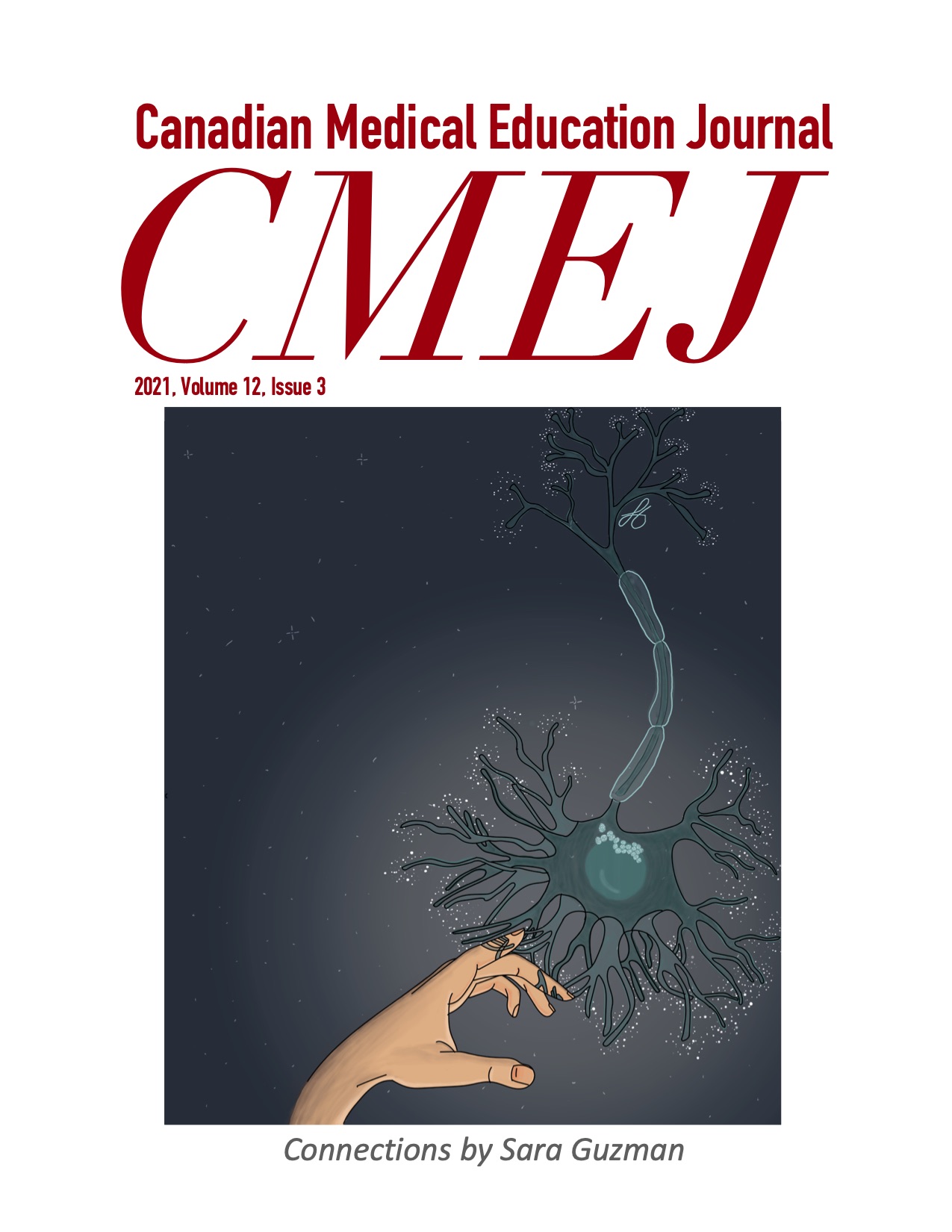Experiential learning, collaboration and reflection: key ingredients in longitudinal faculty development
DOI:
https://doi.org/10.36834/cmej.70224Abstract
Background: Longitudinal faculty development (LFD) may allow for increased uptake of teaching skills, especially in a forum where teachers can reflect individually and collectively on the new skills. However, the exact processes by which such interventions are effective need further exploration.
Methods: This qualitative study examined an LFD initiative teaching a novel feedback approach attended by five family practice physicians. The initiative began with two 1.5-hour workshops: Goal-Oriented Feedback (as the teaching skill to be developed) and Narrative Reflection (as the tool to support personal reflection on the skill being learned). Over the subsequent six-months, the five participants iteratively applied the feedback approach in their teaching and engaged in narrative reflection at four 1-hour group sessions. Transcripts from the group discussions and exit interviews were analyzed using thematic analysis.
Results: Iteratively trialing, individually reflecting on, and collectively exploring efforts to implement the new feedback approach resulted in the development of a learning community among the group. This sense of community created a safe space for reflection, while motivating ongoing efforts to learn the skill. Individual pre-reflection prepared individuals for group co-reflection; however, written narratives were not essential.
Conclusion: LFD initiatives should include an emphasis on ensuring opportunities for iterative attempts of teaching skills, guided self-reflection, and collaborative group reflection and learning to ensure sustainable change to teaching practices.
Downloads
Downloads
Published
How to Cite
Issue
Section
License
Copyright (c) 2021 Laura Farrell, Sarah Buydens, Gisele Bourgeois-Law, Glenn Regehr

This work is licensed under a Creative Commons Attribution-NonCommercial-NoDerivatives 4.0 International License.
Submission of an original manuscript to the Canadian Medical Education Journal will be taken to mean that it represents original work not previously published, that it is not being considered elsewhere for publication. If accepted for publication, it will be published online and it will not be published elsewhere in the same form, for commercial purposes, in any language, without the consent of the publisher.
Authors who publish in the Canadian Medical Education Journal agree to release their articles under the Creative Commons Attribution-Noncommercial-No Derivative Works 4.0 Canada Licence. This licence allows anyone to copy and distribute the article for non-commercial purposes provided that appropriate attribution is given. For details of the rights an author grants users of their work, please see the licence summary and the full licence.











